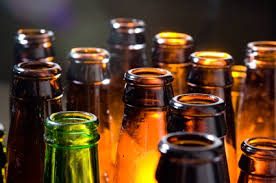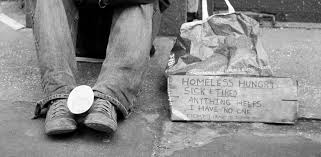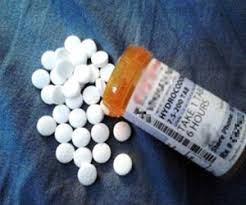Rehab Articles

If someone you love struggles with bipolar disorder there are some tips that can make your life and your living situation more productive and easier. 5 great tips that you can use include:
-
Know what bipolar disorder is. Do the necessary research so that you understand what is going on with your loved one and how you can help them. Understanding what your loved one is experiencing will help you and them both.
-
One of the most helpful tips you can learn is to keep notes and pay attention to the symptoms that your loved one is experiencing and displaying. This symptom journal can be very beneficial for medical and mental health professionals, as well as helping you learn what you can expect and how to best manage these symptoms.
-
Communicate openly with your loved on. Ask them what you can do to help them. Don’t be judgmental or make assumptions. Discuss any concerns with the family physician or mental health treatment provider.
-
Don’t let mania catch you off guard. When someone is depressed there are many symptoms common to most individuals, but mania may be displayed differently be each individual who has bipolar disorder. This mental disorder includes lows that can be very low, and highs that have no ceiling. Needing little sleep, having plenty of energy, and being overly optimistic or failing to see that they are on the upswing of bipolar disorder is often noticed by family members. Some may talk excessively, chattering on and on, while others just seem to be in a good mood.
Rehab Articles

A new study by University of Illinois at Chicago (UIC) College of Nursing researchers may have shown the path to predicting binge drinking to some degree through the use of a biomarker. The study involved a biomarker called phosphatidylethanol or Peth, and it is found in much higher amounts in individuals who are more likely to engage in binge drinking. Hopefully this discovery can lead to the ability of predicting who is at risk of binge drinking with a much higher degree of certainty than what is currently possible. According to University of Illinois at Chicago College of Nursing professor and biobehavioral health science department head Mariann Piano, Ph.D. “Binge drinking is pervasive on college campuses and among young adults. More alarming, though, is the regularity of binge drinking episodes: one in five students report three or more binge drinking episodes in the prior two weeks.”
Dr. Piano worked with associate professor of physical therapy and co-researcher Shane Phillips, Ph.D. during the biomarker study on predicting binge drinking. The study involved analyzing blood from the participants. Dr. Piano reported that “We discovered a significant correlation between PEth levels in both the whole blood and dried blood samples and the number of times subjects consumed four to five drinks in one sitting within the last 30 days. Using a biomarker of heavy alcohol consumption such as PEth along with self-reporting could provide an objective measure for use in research, screening and treatment of hazardous alcohol use among young adults.” Binge drinking is a pattern of excessive drinking that occurs in a relatively short period of time and causes a blood alcohol content of over 0.08.
Rehab Articles

Two of the top reasons that people become homeless are mental illness and alcohol abuse or other forms of substance abuse, and a new program called Housing First is taking steps to provide a solution. A recent study found that it is possible to reduce alcohol abuse for those with mental illness in the homeless population by providing these individuals with a safe place to live that has no preconditions attached. The Housing First approach does not place stipulations on a place to live, such as seeing mental health professionals or sobriety testing. Instead Housing First places a focus on getting the homeless individual into permanent housing that allows the individual to live independently. Support and additional services are provided as needed but the homeless individual does not have to follow any preconditions in order to have a safe place to call home.
The underlying ideal behind the Housing First initiative in order to fight alcohol abuse and mental illness among the homeless is that people will be able to move forward and will have a better life if they have stable housing and a more predictable living situation. The study involved 378 people who were all homeless, and who were all diagnosed with some form of mental illness. All of the study participants were from Toronto, Canada. Those who took part in the Housing First initiative saw a drop in alcohol abuse of more than 50%, and this decrease occurred in spite of the fact that the homeless were not forced to stay sober or to follow any other preconditions in order to avoid becoming homeless again.
Rehab Articles

A recent study by University of Houston researchers has identified a connection between alcohol problems, low self esteem, and jealousy. The study found that individuals who rely on their personal romantic relationship for a sense of self esteem typically use alcohol when they experience jealousy. The study and research results have been published in the Addictive Behaviors journal. This is the very first study that identifies a definite connection between relationship dependent self esteem, romantic jealousy, and alcohol problems. The researchers believe that people who have a higher risk of alcoholism can be better identified when the link between these 3 different factors are understood. When this process is fully understood it could lead to better treatment methods for alcohol addiction.
Dr. Angelo DiBello, lead study author of the research on alcohol problems, jealousy, and self esteem, explained the study. “We all experience feelings of jealousy to some degree; many people are in relationships that are less than ideal, and use alcohol for different reasons. Romantic jealousy is a shared human experience, but very little work has looked at how it is related to alcohol use, misuse and associated problems. This research helps to highlight the associations between these factors and show how our emotions, thoughts, and behaviors are related in potentially harmful ways. Given how common experiencing jealousy and being in romantic relationships are, this work helps to explain difference associations that may negatively impact an individual’s drinking. I think it is important to understand the role romantic jealousy plays in the larger context of problem behaviors. Ultimately, I hope to use findings like these to support the development of prevention and intervention efforts among individuals who may struggle with alcohol, self-esteem, and relationship issues.”
Rehab Articles

A new research study shows that patients who receive opioid drugs for chronic lower back pain get significantly less pain relief and are more likely to abuse the narcotic pain medications if they also suffer from some form of mental illness as well. According to University of Pittsburgh School of Medicine professor of anesthesiology and psychiatry and study author Ajay Wasan, M.D. “High levels of depression and anxiety are common in patients with chronic lower back pain. Learning that we are able to better predict treatment success or failure by identifying patients with these conditions is significant. This is particularly important for controlled substances such as opioids where, if not prescribed judiciously, patients are exposed to unnecessary risks and a real chance of harm, including addiction or serious side effects.”
The study on chronic back pain, opioid abuse, and mental illness involved 55 participants, and all of these individuals suffered from chronic back pain. Those who had high levels of anxiety or depression saw 50% less back pain relief and improvement, and this group also had 75% more opioid abuse. The group with symptoms of mental illness also saw increased side effects from the pain medications that were used. It is commonly recognized that mental illness, including anxiety and depression, can cause physical pain and other symptoms. Dr Wasan stated “It’s important for physicians to identify psychiatric disorders prior to deciding whether to prescribe opioids for chronic back pain as well as treat these conditions as part of a multimodal treatment plan. Rather than refusing to prescribe opioids, we suggest that these conditions be treated early and preferably before lower back pain becomes chronic. For those prescribed opioids, successful treatment of underlying psychiatric disorders may improve pain relief and reduce the chance of opioid abuse in these patients.”



